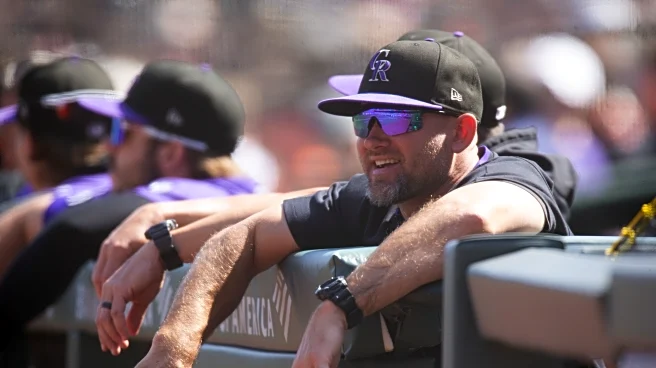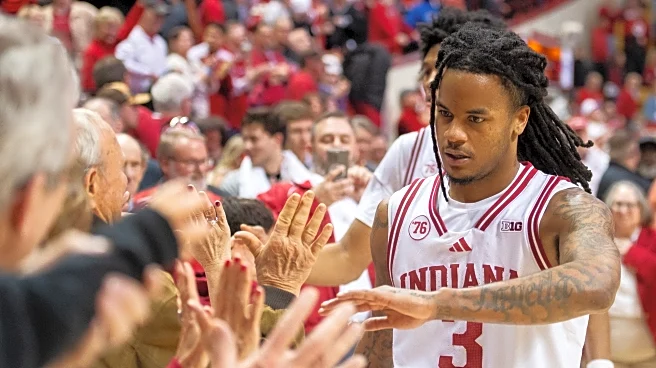It all happened fast.
It was a Sunday afternoon in May that saw the Colorado Rockies pounding the San Diego Padres 9-3 and preparing to get on a plane to Dallas to play the Texas Rangers.
Bud Black was late to his post-game media scrum, and the air was weird. Something was going on, but no one was sure what.
Then-general manager Bill Schmidt found then-third base coach Warren Schaeffer in the Rockies clubhouse.
“You’re the manager now,” he said.
“Okay,” Schaeffer answered.
And that was it.
At that time,
a floundering Colorado Rockies team was 7-33, six weeks into the season and still searching for their tenth win. The pitching was a disaster, and they could not keep infielders healthy. Things would not suddenly improve after the Rockies arrived at Globe Life Stadium, and the Rockies would lose the next four games en route to a 43-119 season.

Schaeffer did not lead the Rockies to a miraculous turnaround, but he did right the ship, change the mood, and get it to port (even in a Jack Sparrow kind of way). These are not small things.
It quickly became clear that this was a learning time for the players and for Schaeffer as a manager. For example, he was initially cautious with media, but as everyone got to know each other better, things settled in. Black did not generally meet with media before games on Sundays; Schaeffer soon began meeting with press whenever there was a game. He answered every question asked of him and never criticized a player in public, other than to say, “We’ve got to get better at that.”
Last May, I wrote about what I came to think of as Schaeffer’s “coaching pedagogy,” so I won’t belabor that here except to reiterate his emphasis on communication, player development, and relationships. In my experience covering the Rockies, Schaeffer was consistent in emphasizing those values.
And when the All-Star Break came, Schaeffer’s message to players was that they had a clean slate. Time to stop thinking about the first half and look to the second. The Rockies were still bad — historically so, and no one was kidding themselves about that. But psychologically, it was a new day, and that mattered. Repeatedly, players would say, “It’s a new day.” In a very difficult season, keeping the clubhouse from falling into despair mattered.
Schaeffer also kept the noise out of the clubhouse. All that losing, all those national reporters who were in the Rockies clubhouse looking for stories, all those personnel changes never got in Schaeffer’s way. He just kept showing up to work, always positive.
During the last home stand, I asked Schaeffer what he’d learned this season. His answer was instructive:
First of all, you learn a lot through failure. We have failed a lot this year, way more than we want to, way more than is necessary to learn from, that’s for sure. You’re always supposed to learn from failure, and you do, but this has been a learning experience in terms of how much can you go through and still get after it every day as a man. And it’s been a really, really good learning experience in the sense that you can do that. You can, through all the failure in the world and all the struggle, you can come to the ballpark with that decision every day, a good attitude to get other guys better. . . . If some days it’s a hard day, you say this: “It’s not about me. It doesn’t matter how I feel. Let’s go to the ballpark and get somebody better.”
On Monday, the Rockies made the news official: Warren Schaeffer had been hired as the Rockies manager.
It was the right choice, and here’s why.
First, he’s shown he can adjust quickly — he did that when he took the job and continued to learn throughout the season through a shifting roster. This season, the Rockies played 57 players, 13 of them rookies making their MLB debuts. Schaeffer adapted to each move and instigated more changes within the Rockies organization as he focused on player development. (That recent emphasis on biomechanics? That was Schaefffer.)
President of baseball operations Paul DePodestas is going to continue to make changes in the Rockies system; having Schaeffer’s familiar presence in the dugout to help players acclimate to whatever’s coming will be important.

Second, Schaeffer has the players’ trust.
“I’m very excited for ‘Schaeff’ and his family and our organization with him at the lead,” Kyle Freeland told Patrick Saunders. “We love playing for him and the type of mentality and passion he brings to the field every day.”
Similarly, Hunter Goodman added, “I think it’s really good for the team, especially with all of our young guys,” adding, “He’s a younger manager. He’s got a great relationship with all of our guys. His level of communication with me, throughout the season, was awesome. As far as a leadership role, he shows up every day with the drive to get better and I think that’s what we need.”
Here’s Mickey Moniak: “I think Schaeff’s leadership style is one of the best I’ve been around. I think he genuinely cares about each and every guy in this clubhouse. He wants to win. He wants to put us in the best situation to win. And it’s been a tough year, just all together, and I think just his steadfastness throughout this whole season, ever since he took over, and even before that when he was a coach, I think just speaks volumes to the kind of person he is and type of leader he is.”
All that positivity, all those conversations, all those supportive comments led to players trusting Schaeffer.
“I’d run through a brick wall for the guy,” Blaine Crim said in September, “and I’ve only been here a week.”
That kind of trust is essential when change is happening, and Schaeffer has built it.
Third, Schaeffer’s learning, too, and 2026 is going to mark another year of learning for him. I watched him learn on the job last season under extraordinarily difficult circumstances, and I’m convinced he will learn more and become a better manager under DePodesta. And, conversely, I think Schaeffer’s career experience in the Rockies organization will be useful to DePodesta.
One thing we’ve learned from the early DePodesta days is that he’s trying to inject stability into an unstable system. Keeping Warren Schaeffer as the Rockies manager is another example of that.
It’s the right move.
Let’s book club!
During the last home stand, we were talking with Schaeffer before the media availability officially began. A history major with an English minor from Virginia Tech, Schaeffer is an avid reader — at the time, he was working through a David McCullough history. (Sorry, but I’ve forgotten which one.)
I suggested at the time that he start an offseason book club. Now that he’s gotten the managerial job, it’s time.
Schaeff, let us know the title so that we can get to work! Let’s make it a panel at Rockies Fest on January 25, 2026.
Colorado reliever Juan Mejia has a Brayan Bello connection | FanGraphs
Here David Laurila provides some insight on one of the Rockies bullpen bright spots of 2026.
Authenticity, Collaboration, Respect: The Story Behind the Spokane Indians | SportsLogos.net
Paul Caputo describes the Rockies’ High-A affiliate’s relationship with the Spokane Tribe. “Today’s relationship with the tribe is excellent, and has been for a number of years,” said Otto Klein, the team’s senior vice president.
Please keep in mind our Purple Row Community Guidelines when you’re commenting. Thanks!
















